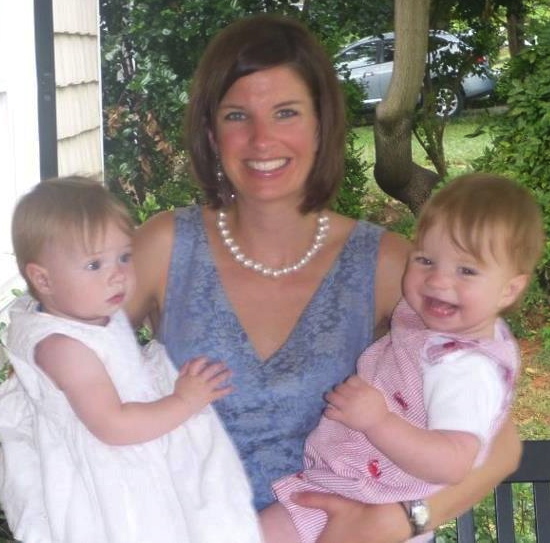The following sermon is an excerpt from Shook Foil Books Young Preachers Compilation, a collection of twenty thoughtful sermons from young (under forty-years-old) church leaders. Springing from a diverse array of ministry contexts, these sermons reveal the strength, creativity, and thoughtfulness of today’s emerging voices. This collection will inspire and challenge through biblical insight and faithful exegesis. Social justice themes include domestic violence, the church and inclusivity, and women in the Bible. Learn more about the book and its publisher here. Purchase for your Kindle, Nook, or iTunes.
“Throwing Stones” by Julie Dunson Meredith, edited by Erik W. Dailey John 8: 2-11
John 8: 2-11
Early in the morning he [Jesus] came again to the temple. All the people came to him and he sat down and began to teach them. 3The scribes and the Pharisees brought a woman who had been caught in adultery; and making her stand before all of them, 4they said to him, “Teacher, this woman was caught in the very act of committing adultery. 5Now in the law Moses commanded us to stone such women. Now what do you say?” 6They said this to test him, so that they might have some charge to bring against him. Jesus bent down and wrote with his finger on the ground. 7When they kept on questioning him, he straightened up and said to them, “Let anyone among you who is without sin be the first to throw a stone at her.” 8And once again he bent down and wrote on the ground. 9When they heard it, they went away, one by one, beginning with the elders; and Jesus was left alone with the woman standing before him. 10Jesus straightened up and said to her, “Woman, where are they? Has no one condemned you?” She said, “No one, sir.” And Jesus said, “Neither do I condemn you. Go your way, and from now on do not sin again.”
Throwing Stones
I wish I knew more about the woman in this story. Obviously, she wasn’t a perfect woman. After all, the scripture tells us that she had committed adultery, breaking one of the most important Jewish laws, defying God by not adhering to one of the ten greatest commandments. Clearly, she was no saint. And yet, this sin of adultery is the only thing we know about this woman. We don’t know her name, her family background, or her age. We don’t know whether she is single, married, or widowed, whether she is a mother, grandmother, or expecting her firstborn. We are told nothing about her history, character, or personality. All we know about this woman is the fact that she has committed a sin, and, let’s be honest, we know very little about the nature of the sin itself. Perhaps she had a long history of infidelity or questionable morals and this was simply the first time she had been caught. Maybe this was a first-time offense, an error of judgment on her part. Perhaps she had been forced into this act of adultery against her will—after all, such occurrences of horrendous violence were not uncommon in that time and culture, and unfortunately are not uncommon in today’s culture. It’s even possible that she might have been wrongly accused of this sin. It doesn’t sound like those scribes and Pharisees had treated this woman to a hearing or a trial before they pulled her up those temple steps, subjecting her to public humiliation, planning to subject her to a death filled with pain and void of dignity.
___________________________________________
I wonder why Jesus didn’t wish to know more facts about this woman and the nature of her crime. These facts don’t seem important to Jesus as he contemplates whether or not she deserves to be stoned. Instead, Jesus seems interested in facts, not about the adulterous woman, but about the ones who are ready to condemn her.
___________________________________________
Yes, I wish I knew more about the woman in this story. I think that’s a natural wish for us to have when reading this passage. Because if we knew more about this woman—her name, her face, her background, her character, the nature of that sin she had committed—then we could make our own judgments about her. We could put her on trial by the standards of our own values, deciding for ourselves what the nature of her punishment should be. We wish we knew more about this woman. But, the reality is, we don’t. And, as we look at this scripture, we come to recognize that this reality holds true for Jesus as well. Jesus didn’t know anything more about this woman than what we know from reading this passage. The scribes and Pharisees who bring this woman to Jesus don’t provide him with any facts about her life or her sin. All that Jesus is told about this woman is that she has been caught in the act of adultery, a sin that is punishable by stoning according to the Law of Moses. She is brought to Jesus as a “dead woman walking,” a woman who surely now deserves a public act of violent physical abuse.
I wonder why Jesus didn’t wish to know more about this woman. Unlike us modern-day readers of scripture, Jesus was inside this story. He could have asked for more facts about this woman and the nature of her crime. But, for some reason, these facts don’t seem important to Jesus as he contemplates whether or not she deserves to be stoned. Instead, Jesus seems interested in facts, not about the adulterous woman, but about the ones who are ready to condemn her. So, he gives these scribes and Pharisees a chance to share a little bit about themselves. Jesus tells them, “Let anyone among you who is without sin be the first to throw a stone at her.” He wants to see who of these men is sinless, flawless, perfect. He waits and watches as they reluctantly drop their stones to the ground, as they slowly walk away in silence. These men respond to Jesus’ request by revealing the fact that they too are sinners, that they who were prepared to commit an act of violence against a sinful woman were actually full of sin themselves. This seems to be the only fact that Jesus is interested in knowing. And, in Jesus’ simple words and actions in this passage, we can recognize why. You see, in this brief, ancient, and intense story, Jesus teaches a timeless lesson: only the one who is without sin has the right to punish a sinner. Only the one who has no flaw has the right to damage or tear apart the life of a flawed person. Ironically, at the end of this story, this flawed, sinful woman finds herself face to face with that flawless, sinless one—Jesus Christ, God incarnate. He is the only one who has the right to harm her, punish her, or condemn her to death, and he stands beside her in her despair. Instead of punishing this woman, he sets her free. Instead of condemning her to a life ended by violence, he gives her a new life filled with peace. In this brief but intense story, Jesus answers the question, “When is it appropriate to throw stones?” He answers it with simplicity: “Never. Never is it appropriate to throw stones.”
Jesus teaches that angry crowd that, before they have the right to throw stones, before they have the right to condemn a sinner, they must first make sure they are free from sin. Jesus teaches us here that we must be sinless and without flaws before we judge another, before we condemn a person whom we deem to be sinful. So, as people who are inevitably sinful, we should be able to recognize that throwing stones is never right, never justified. It seems like a simple concept to grasp. So, I wonder, when will we stop throwing stones?
___________________________________________
Stones are thrown behind closed doors as well. We live in a country in which a case of domestic violence is reported every minute, and it is estimated that a woman is physically abused every nine seconds.
___________________________________________
We live in a world where we still throw stones at one another. We live in a world in which we are taught that acts of physical and emotional violence are natural and justified. Violent disputes and wars break out between nations. Fights and shootings occur between students in our schools. Hateful words are continually exchanged between races, religious groups, political parties, co-workers, and neighbors. Stones are thrown behind closed doors as well. We live in a country in which a case of domestic violence is reported every minute, and it is estimated that a woman is physically abused every nine seconds. Where I live, South Carolina, one out of every three students in high school will experience dating violence before they graduate. Twenty-five percent of women in the United States report that a partner or husband, at some point in their lives, has abused them.
When will we stop throwing stones? In the church, it is easy for us to believe that we are immune to violence, that issues of violence don’t happen in our families, in our communities, in our schools, or among our children. And yet, if we really think about it, I wonder how many of us have found ourselves in the position of those scribes and Pharisees, ready figuratively or literally to throw stones at another person or a group of people because we feel more holy or more powerful than them. And, if we really think about it, I wonder how many of us have found ourselves in the position of that woman accused of adultery, feeling completely powerless, with our fate in the hands of those who seek to destroy us, to tear us apart, to break us. If we are honest, many of us have been in both of these positions. Stones have been thrown at us in some form or another, and, for this very reason, we grow up to become stone-throwers, to hurt others in the way that we have been hurt, to condemn others as we have been condemned.
When will we stop throwing stones? I am an ordained pastor serving at Safe Harbor, a nonprofit organization that serves victims of domestic violence and their children in the Upstate of South Carolina. Some of the volunteers we work with have felt led to serve the women and children of Safe Harbor because they, or someone they know, have experienced domestic violence at some point in their lives. We have one volunteer, whom I’ll call John, who openly shares his story with us. John was just a toddler when his father began abusing his mother. Throughout his childhood, he went to bed every night praying that his father would stop hurting his mother, praying that she would live another day. His mother did her best to keep her husband from losing his temper, waiting and hoping that someday he would change. She endured an incredible amount of injuries and threats to her life, but when her husband threatened John’s life as well, she waited no longer. John and his mother fled their home and found a domestic violence shelter that could accept them. They had to flee to several different shelters over a period of months before John’s father finally stopped searching for them, before the threats finally ended and they were able to live a life of peace. John has dedicated his life to peace. He is now an adult, a loving husband, and father who has broken his family’s cycle of violence, and he lives as a person determined to break further this cycle in his own community. John tells the women at Safe Harbor that they do not deserve the stones that have been thrown at them. He reminds the children of Safe Harbor that anyone can throw stones, but a strong person drops them to the ground, recognizing that the pattern of stone throwing can end only with their help, with their dedication to replace violence with love, abuse with peace.
___________________________________________
Stones have been thrown at us in some form or another, and, for this very reason, we grow up to become stone-throwers, to hurt others in the way that we have been hurt, to condemn others as we have been condemned.
___________________________________________
Mother Theresa once said, “If we have no peace, it is because we have forgotten that we belong to each other.” We have forgotten that we are all created by God, a God who loves us so much that we are forgiven despite our flaws, despite our imperfections and sins. We as Christians have forgotten that we worship a Savior who called those scribes and Pharisees to stop throwing stones a long time ago, a Savior who calls us today to stop throwing stones at one another. And yet, we still don’t listen. At some point or another, we have all thrown stones. Perhaps we have thrown stones with our thoughts, judging another person because they are different, because we do not agree with them, because we are not willing to make an effort to understand their point of view. Maybe we have thrown stones with our words, bruising another’s self esteem while making ourselves feel superior. Or, maybe we have literally thrown stones, physically harming another person because we have a need to feel powerful, to feel as if we are in control.
At some point or another, we all have been advocates for violence instead of peace, self-righteous judgment instead of acceptance, hatred instead of love. I’m wondering when it will end. I’m wondering when we’ll hear the words of a Savior who tells us “Let the one who is without sin cast the first stone.” I’m wondering when we’ll look around and recognize that none of us fit that bill. I’m wondering when we’ll look up and recognize that the Messiah we worship is the only one who lives up to that perfect standard, the only one who has the right to throw stones. I’m wondering when we’ll open our eyes to remember that this Savior, who has every right to throw stones at us, chose to die and rise again for us, freeing us from a life of condemnation and opening us to a life of freedom and peace.
When will we stop throwing stones? I wonder if it could be today. Maybe today is the time, the time for us to drop our stones to the ground, replacing them with love and compassion for ourselves, for each other, and for a Savior who loves us so much that he lived and died and rose again. God replaces the punishment we deserve with forgiveness, saying, “Go, and sin no more.” Amen.
Learn more about Safe Harbor, South Carolina, and join Presbyterians Against Domestic Violence Network.
The Rev. Julie Dunson-Meredith is the Director of Communication and Outreach at Safe Harbor, a nonprofit organization serving victims of domestic violence in the upstate of South Carolina. She enjoys running and chasing after her toddler twins, Virginia and Sam. Banner photo by Radoslaw Piekarz.







Unbound Social